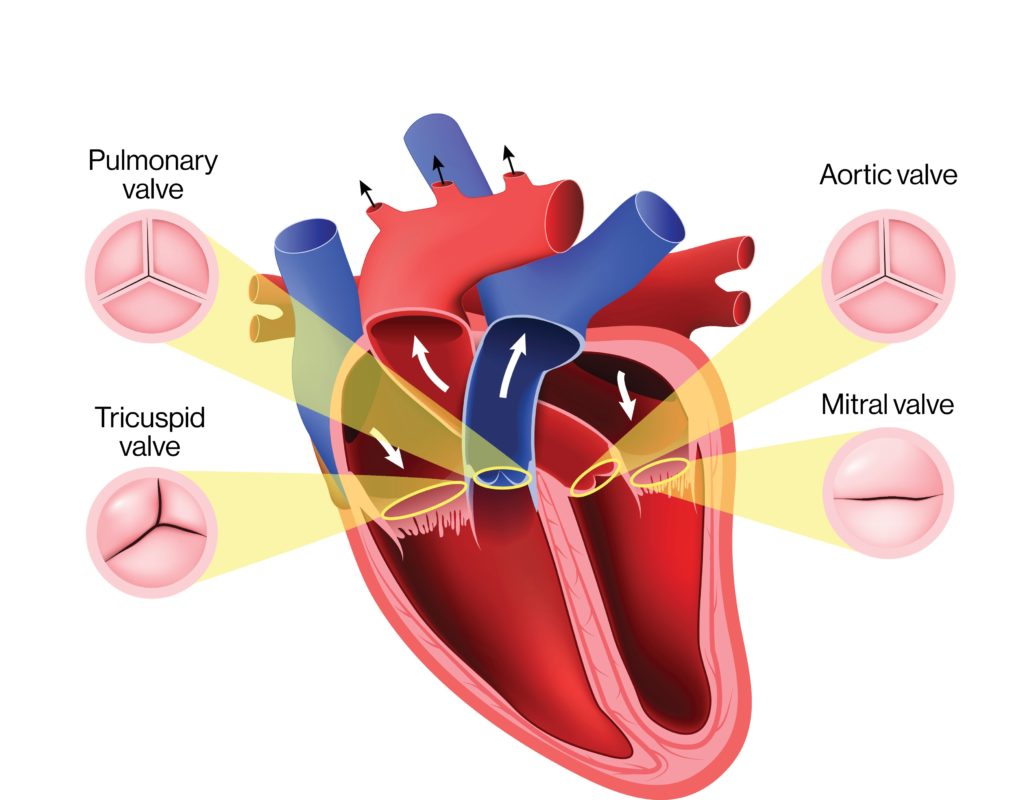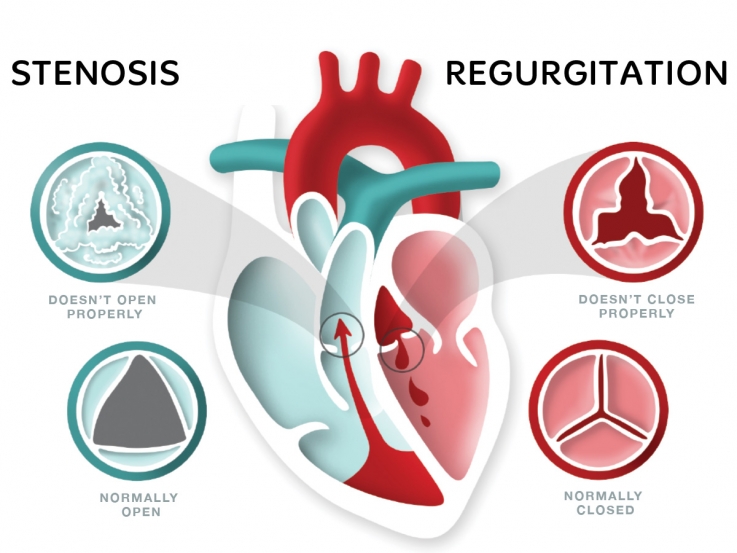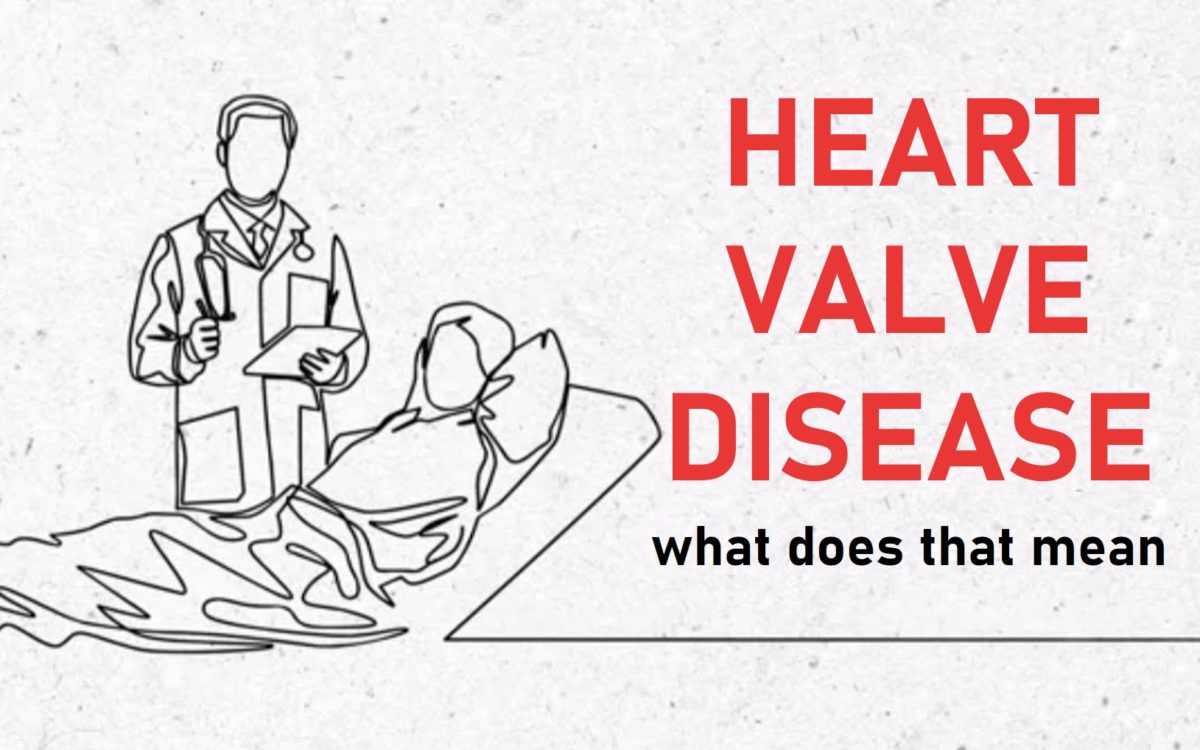The human body is like a well-oiled machine. The heart has one of the most important functions in the machine — pumping blood throughout the body. This process is called circulation.
There are many different types of heart disease, and heart valve disease is one of the most common. Fortunately, valve disease is treatable — when found in its early stages.
The anatomy of the heart
In order to understand the heart valve disease, it is important to have a basic idea of different parts of the heart. Consider below image:
The heart has four chambers. Atria – two small chambers at the top of the heart & Ventricles – larger chambers at the lower part of the heart. The bottom ventricles have valves with flaps that work like doors, opening and closing to allow blood flow throughout the heart and the rest of the body.
Valve disease can be sneaky
Valve disease can get worse over time if left untreated. It sometimes can be mistaken for something else. For example, a person with lung diseases can have a shortness of breath. However this might be a sign of valve disease as well.
Physicians can detect heart valve issues if they notice a heart murmur. Again not all murmurs are from valve disease. Echocardiography is the best way to detect the valve disease.
Types of valve disease

Regurgitation – Blood flows in the wrong direction, leaking backward through a valve.
Stenosis – A valve narrows and won’t open enough, not allowing enough blood to flow.
Valve prolapse – It occurs when the flaps are too weak and cannot close tightly. This type of disease only affects the mitral valve.
Who gets it
Some people are born with a predisposition having weak leaflets, which causes leakage of the valves. Stenosis is more to occur with age.
Problems that cause valve disease:
- Infection of the valves
- Calcium and other deposit can stiffen the flaps of valves
- Heart attack, heart failure or build-up of plaque (atherosclerosis) inside the arteries
Other risk factors include:
- coronary artery disease
- family history
- radiation therapy
- some diet medicines
- certain autoimmune disorders including lupus, rheumatoid arthritis
What it feels like
Many people with heart valve disease don’t have symptoms during the early stages. But early treatment is very important.
Common signs and symptoms include:
- a heart murmur
- shortness of breath, especially after being active or when lying flat in bed
- unusual fatigue
- dizziness or fainting
- heart palpitations
- swelling in ankles, feet or belly
Since early treatment is highly important for heart valve diseases, if you suspect there is something wrong, talk with your doctor.
Diagnosis and treatment of heart valve disease
Your cardiologist can tell if you have valve disease by taking certain physical exams such as:
- listening to your heart to hear the sounds the heart makes as the valves open and close – a murmur
- checking if the heart rhythm is irregular – arrhythmia
- listen to your lungs to hear if you are retaining fluid in your lungs, which shows your heart is not able to pump as well as it should
After physical examinations, the doctor may order diagnostic tests. These may include:
- Echocardiography
- Transesophageal echocardiography
- Cardiac catheterization (also called an angiogram)
- Radionuclide scans
- Magnetic resonance imaging (MRI)
Treatment for heart valve disease depends on the type and severity of valve disease. There are three goals of treatment for heart valve disease: protecting your valve from further damage; lessening symptoms; and repairing or replacing valves.
Medications. You may be prescribed medications to treat your symptoms and to lessen the chance of further valve damage.
Surgery and Other Procedures. Heart valves may also be repaired by other procedures such as percutaneous balloon valvuloplasty. Valves can be repaired or replaced with traditional heart valve surgery or a minimally invasive heart valve surgical procedure.
If you think you have heart valve disease, make an appointment to see your cardiologist.











